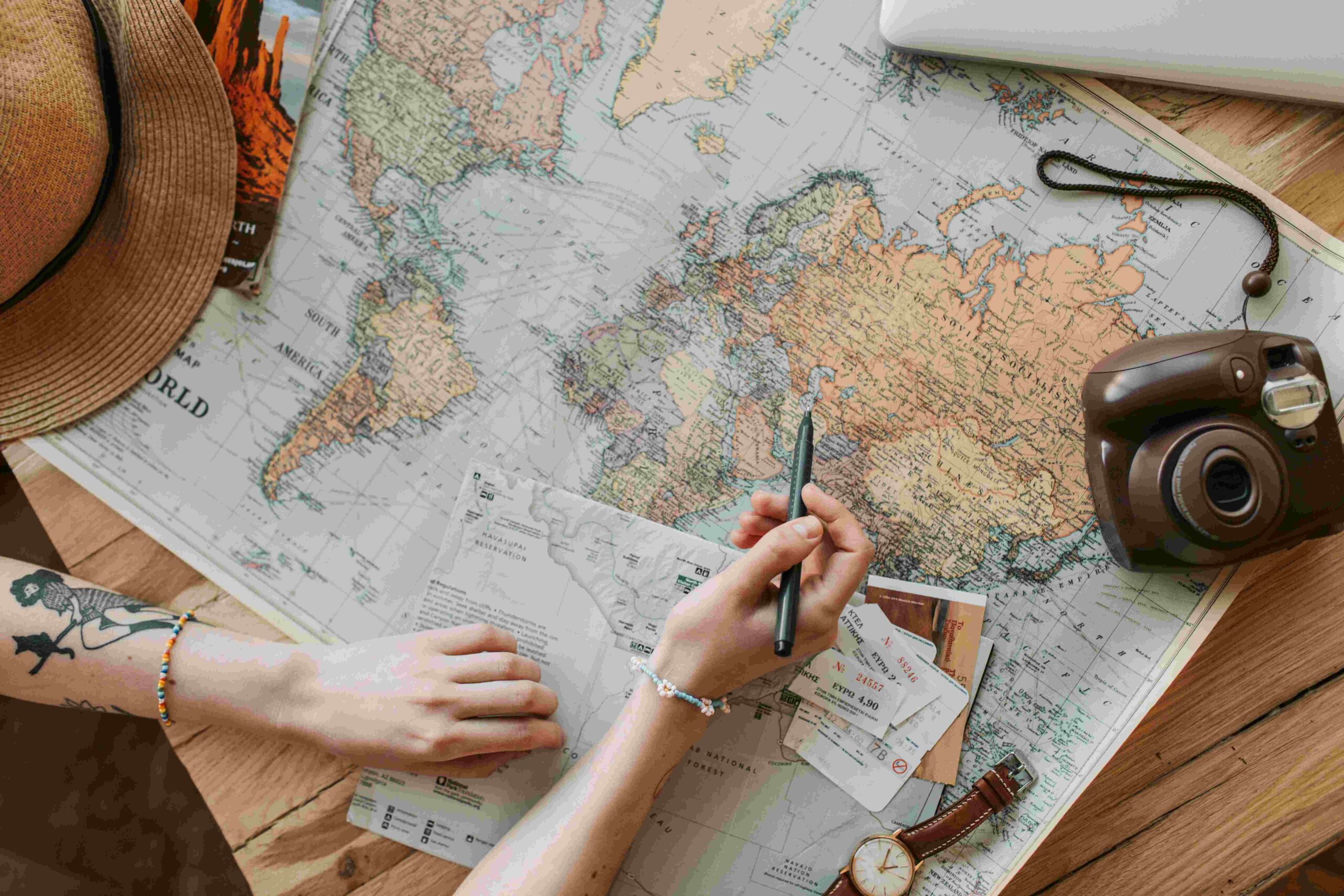
How Traveling Changes Your Perspective on Life
Article Level: C1-C2
Explanation: This article explores how travelling transforms perspectives, fostering empathy, resilience, and introspection. By encountering new cultures and environments, travellers gain deeper understanding of themselves and the world, making each journey a catalyst for personal growth.
Commonly Used Words from the Article
-
Perspective /pəˈspɛktɪv/ (noun): A particular way of considering something.
Travel helps broaden your perspective on life. -
Empathy /ˈɛmpəθi/ (noun): The ability to understand and share the feelings of others.
Meeting locals nurtures empathy and understanding. -
Resilience /rɪˈzɪliəns/ (noun): The capacity to recover quickly from difficulties.
Travel cultivates resilience when facing unforeseen challenges. -
Introspection /ˌɪntrəˈspɛkʃən/ (noun): The examination of one’s own thoughts and feelings.
Travelling often triggers introspection about personal priorities. -
Nuanced /ˈnjuːɑːnst/ (adjective): Characterised by subtle distinctions or variations.
Exposure to diverse cultures provides a more nuanced understanding of humanity.
Audio File of the Article
Read more: How Traveling Changes Your Perspective on Life

How Traveling Changes Your Perspective on Life
Travel is often seen as a mere leisure activity, yet its impact stretches far beyond temporary relaxation. Embarking on journeys to new places can profoundly reshape how we perceive the world and ourselves. By stepping outside familiar surroundings, we confront unfamiliar customs, languages, and ways of life, which challenges our preconceptions and broadens our understanding of human experience.
One of the most compelling aspects of travel is its ability to foster empathy. When we encounter people from diverse cultural backgrounds, we gain insight into their values, struggles, and aspirations. This exposure diminishes stereotypes and nurtures a more nuanced appreciation of humanity. Simple interactions, such as sharing a meal with locals or participating in community traditions, can illuminate perspectives that remain hidden in books or documentaries.
Travel also cultivates resilience and adaptability. Navigating foreign transport systems, overcoming language barriers, or adjusting to different climates requires flexibility and problem-solving skills. These experiences teach us that discomfort and uncertainty are not only manageable but can be enriching, instilling confidence that extends into everyday life.
Moreover, travel often triggers introspection. Distance from routine environments encourages reflection on personal priorities, ambitions, and relationships. Witnessing the vastness of nature or the ingenuity of human civilisation can provoke a sense of humility, inspiring us to reconsider our roles within the broader tapestry of life. Many travellers return home with a renewed sense of purpose, having acquired perspectives unattainable within the confines of familiar surroundings.
The digital age has made travel more accessible than ever, yet its transformative potential remains undiminished. Even short trips can leave lasting impressions, highlighting the importance of curiosity and openness. Photography, journaling, or simply observing daily life in a foreign context can serve as tools for deeper understanding, allowing memories to evolve into meaningful life lessons.
In essence, travel is not merely about visiting landmarks or ticking boxes on a checklist; it is a journey of the mind and spirit. Each destination provides a lens through which we can re-evaluate our assumptions, enhance our empathy, and embrace the uncertainty of the unknown. By travelling with intention and awareness, we embark on a process of personal evolution, discovering that the world is simultaneously larger, stranger, and more interconnected than we ever imagined.

Grammar Notes
-
-
-
Complex Sentences: The article frequently uses subordinate clauses to link ideas (e.g., “By stepping outside familiar surroundings, we confront unfamiliar customs…”).
-
Present Simple & Present Continuous: To describe general truths and ongoing experiences (e.g., “Travel is often seen as a mere leisure activity”).
-
Modal Verbs: “Can” is used to express possibility and ability (e.g., “Travel can profoundly reshape how we perceive the world”).
-
Passive Voice: Used to emphasise actions rather than the doer (e.g., “Travel is often seen as a mere leisure activity”).
Mini Grammar Lesson:
-
Complex sentences combine a main clause with one or more subordinate clauses, making writing more nuanced.
Example: “While travelling, people often learn more about themselves than they expected.” -
Modal verbs express possibility, necessity, or ability. Example: “Travel can teach resilience.”
-
Passive voice emphasises the action rather than who performs it. Example: “New perspectives are gained through travel.”
-
-
Join Our FREE English Grammar Course and improve your grammar skills!

Five Questions Based on the Article
-
-
-
How does travel help reduce stereotypes and foster empathy?
-
What skills are enhanced by navigating unfamiliar environments during travel?
-
How can short trips still have a lasting impact on personal growth?
-
Why does travelling encourage introspection and self-reflection?
-
In what ways can observing local life abroad reshape one’s worldview?
-
-
Join Our FREE Weekly English-speaking Class and improve your speaking skills!

We’d love to hear your thoughts! Join the conversation by leaving a comment below. Sharing your insights, questions, or experiences can help you connect with others in our English learning community. It’s a great way to practice your English skills, engage with like-minded individuals, and improve together. Don’t be shy—jump in and let’s keep the discussion going!

 EnglishMasteryHub
EnglishMasteryHub